Winter Light (Swedish: Nattvardsgästerna, lit. 'The Communicants') is a 1963 Swedish drama film written and directed by Ingmar Bergman and starring Bergman regulars Gunnar Björnstrand, Ingrid Thulin and Max von Sydow. The film follows Tomas Ericsson (Björnstrand), pastor of a small rural Swedish church, as he deals with an existential crisis and his Christianity.
| Winter Light | |
|---|---|
Theatrical release poster | |
| Directed by | Ingmar Bergman |
| Produced by | Allan Ekelund |
| Written by | Ingmar Bergman |
| Starring | Ingrid Thulin Gunnar Björnstrand Max von Sydow Gunnel Lindblom |
| Cinematography | Sven Nykvist |
| Edited by | Ulla Ryghe |
Release date |
|
Running time | 81 minutes |
| Country | Sweden |
| Language | Swedish |
The film is the second in a series of thematically related films, following Through a Glass Darkly (1961) and followed by The Silence (1963), which is sometimes considered a trilogy. In it, Bergman reconsidered Through a Glass Darkly's argument that God is love, and repeated the prior film's reference to God as a monstrous spider.
Bergman formed the story after speaking to a clergyman whose follower committed suicide. It was shot in different locations in Sweden in 1962. Vilgot Sjöman's film Ingmar Bergman Makes a Movie was made simultaneously with Winter Light and documents its production. The feature received positive reviews.
Screenplay
In the final moments of Pastor Tomas Ericsson's noon service, only a handful of people are in attendance, including fisherman Jonas Persson and his pregnant wife Karin, and Tomas's ex-mistress, the atheistic Märta. After the service, Tomas, though coming down with a cold, prepares for his three o'clock service in another town. Before he leaves, however, the Perssons arrive to speak to him. Jonas has become morose after hearing that China is developing an atomic bomb. Tomas speaks to the man briefly, but asks Jonas to return after taking his wife home. No sooner have the Perssons left than substitute teacher Märta enters, and she attempts to comfort the miserable Tomas, and asks if he's read the letter she wrote to him. He has not, and tells her of his failure to help Jonas, and wonders if he will have anything to say, since he is without hope as well. Märta states her love for Tomas, but also her belief that he does not love her. She leaves, and Tomas reads her letter.
In the letter, Märta describes Tomas's neglect of her, relating a story of how a rash that disfigured her body repulsed him, and neither his faith nor his prayers did anything to help her. She writes of how her family was warm and loving without religion, and expresses bewilderment at his indifference to Jesus. Tomas finishes the letter, and falls asleep. Awakened by the return of Jonas, Tomas clumsily tries to provide counsel, before finally admitting that he has no faith as well. He says his faith was an egotistical one – God loved humanity, but Tomas most of all. Serving in Lisbon during the Spanish Civil War, Tomas could not reconcile his loving God with the atrocities being committed, so he ignored them. Tomas finally tells Jonas that things make more sense if we deny the existence of God, because then man's cruelty needs no explanation. Jonas leaves, and Tomas faces the crucifix and declares himself finally free.
Märta, who has been lurking in the chapel, is overjoyed to hear this, and embraces Tomas, who again does not respond to her affections. They are interrupted by the widow Magdalena, who tells them that Jonas has just committed suicide with a rifle. Tomas drives, alone, to the scene, and stoically helps the police cover Jonas's body with a tarp. Märta arrives on foot, and she and Tomas drive off to her home, where she invites him in to take some medicine for his cold. Waiting in Märta's classroom attached to her house, Tomas finally lashes out at her, telling her first that he rejected her because he was tired of the gossip about them. When that fails to deter her affections, Tomas then tells her that he was tired of her problems, her attempts to care for him, and her constant talking, and that Märta could never measure up to his late wife, the only woman he has ever loved. Though shocked by the attack, Märta agrees to drive with him to the Persson house. Informed of Jonas's suicide, Karin collapses onto the stairs and wonders how she and her children will go on. Tomas makes a perfunctory offer of help, and leaves.
Arriving for the three o'clock service at the second church, Tomas and Märta find the building empty except for Algot, the handicapped sexton, and Fredrik, the organist. In the vestry, Algot questions Tomas about the Passion. Algot wonders why so much emphasis was placed on the physical suffering of Jesus, which was brief, versus the many betrayals he faced from his disciples, who denied him, did not understand his message, and did not follow his commands, and finally from God, who did not answer him on the cross. He asks, "Wasn't God's silence worse?" Tomas, who has been listening silently, answers yes. Meanwhile, Fredrik tells Märta that she should leave the small town and Tomas and live her life, rather than stay and have her dreams crushed like the rest of them, but she chooses to start praying. Fredrik and Algot wonder if they should have a service since no one has shown up. Tomas still chooses to hold it, and the bells are rung. He begins the service, in which he proclaims that God is holy and that all the earth is full of His glory.
- Gunnar Björnstrand – Tomas Ericsson, pastor
- Ingrid Thulin – Märta Lundberg, schoolteacher
- Gunnel Lindblom – Karin Persson
- Max von Sydow – Jonas Persson
- Allan Edwall – Algot Frövik, sexton
- Kolbjörn Knudsen – Knut Aronsson, warden
- Olof Thunberg – Fredrik Blom, organist
- Elsa Ebbesen – Magdalena Ledfors, widow
Ingmar Bergman identified previous films he had made with similar themes as The Virgin Spring (1960) and Through a Glass Darkly (1961). Winter Light is often considered the second film in a trilogy, following Through a Glass Darkly and completed by The Silence. All three films focus on spiritual issues. Bergman writes, "These three films deal with reduction. Through a Glass Darkly – conquered certainty. Winter Light – penetrated certainty. The Silence – God's silence – the negative imprint. Therefore, they constitute a trilogy". He later retracted his claim the films form a trilogy.
With Through a Glass Darkly ending with a discussion of how God is love, Winter Light further examines if understanding God is as simple as that. Bergman stated he abandoned the idea that love is proof of God because it was unsatisfactory to explain to a character who was suicidal over fear of nuclear war. The character Blom mocks the idea of God as love, attributing the words to Tomas but quoting the end of Through a Glass Darkly exactly. Tomas's loss of his wife, and his loss of his ability to love, is further proof to him that God has become silent. In contrast, the character Algot, presented as enlightened, equates Tomas's spiritual crisis with sayings of Jesus on the cross and God's "silence".
Like Through a Glass Darkly, Winter Light describes God as a "spider-god," with Winter Light explaining the metaphor when Tomas relates the spider-god to suffering, as opposed to his previous ideas of a God of love that provides comfort. The ending may mean Tomas has decided God does not exist, or that Tomas learns he must keep his faith because all Christians, including Jesus, grapple with God's silence. In Bergman's view, Winter Light represents the end of his study on whether God exists, after which human love became his main concern.
Development
Director and screenwriter Ingmar Bergman was inspired to make the film after talking to a clergyman, who related how he had offered spiritual advice to a fisherman who later killed himself. To this, Bergman added the ideas of the clergyman struggling with his faith and a relationship outside marriage. The idea of the character becoming depressed over fear of China and weapons of mass destruction was based on an article Bergman himself had read, and he acknowledged it reflected his own dread.
Bergman attempted to structure the screenplay as chamber music, in three acts. It is meant, in part, as criticism of the governance of the Church of Sweden, which Bergman felt was condemning itself by failing to keep what is important. He completed the screenplay on 11 August 1961, at which point Vilgot Sjöman began filming the documentary Ingmar Bergman Makes a Movie chronicling the production.
With this film, Bergman took the rare step of sharing the screenplay with his father, Church of Sweden minister Erik Bergman, and boasted that his father read it three times. Ingmar may have been trying to communicate to his father that he understood Erik, but the name of the character, Ericsson (son of Erik), may indicate the character represents Ingmar more than Erik.
Casting
Ingmar Bergman personally cast some of the roles himself. Actor Gunnar Björnstrand, who played Tomas, typically acted in more comedic roles, and found it challenging to play a character who was in some ways unlikable. This led him to forget some of his lines, which Bergman said he had never seen Björnstrand do before. However, Björnstrand told Sjöman he personally liked the character because of his relatability.
Allan Edwall played Algot, a character with the same form of rheumatism as prop artist K.A. Bergman. As a result, K.A. Bergman supervised Edwall's performance.
Filming
The film was shot between 4 October 1961 and 17 January 1962 in the Filmstaden studios, Skattunge kyrka with surroundings and Rättvik. Although most film sets have no roofs, the crew built a roof over the church it constructed. K.A. Bergman brought in hymn boards, which were centuries old, from real churches in Forsbacka and Lillkyrka.
Cinematographer Sven Nykvist's lighting was used directly from low perspectives in his shots. To reduce the shadows as much as possible, Nykist had reflectors and screens built to also indirectly light scenes. Although the clothing is ordinary, costume designer Max Goldstein had the actors try out many articles of clothing to determine what looked best, and Ingmar Bergman did not review his sketches. The film employs no score aside from the organ music. Bergman planned to use Sarabande from Suite No. 2 in D minor for Cello, BWV 1008 by Johann Sebastian Bach for the scene where Tomas and Märta leave the scene of Jonas's suicide, tying in with the use of
Watch movie Winter Light online on Amazon
Watch movie Winter Light online
Watch The Movie On PrimeDarling Full HD Movie Download
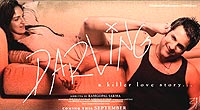
Bhediyon Ke Samooh Full HD Movie Download
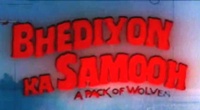
Sardari Begum Full HD Movie Download
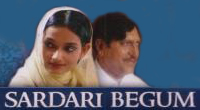
Sharafat Chhod Di Maine Full HD Movie Download
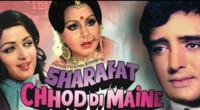
Say Salaam India Full HD Movie Download
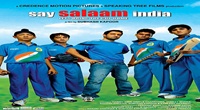
Sanam Harjai Full HD Movie Download

Ardhangini Full HD Movie Download
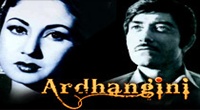
Dancer Full HD Movie Download

Shob Charitro Kalponik Full HD Movie Download
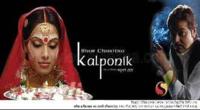
Kabhi Socha Bhi Na Tha Full HD Movie Download
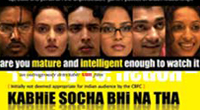
Ghar Mei Ram Gali Mein Shyam Full HD Movie Download
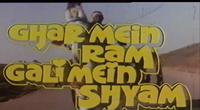
Hum Full HD Movie Download
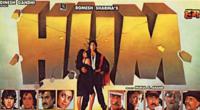
Madhubaala Full HD Movie Download

Benaam (1974) Full HD Movie Download
.jpg)
Himmatwala (1983) Full HD Movie Download
.jpg)
Beqasoor (1981) Full HD Movie Download
.jpg)
Subhash Full HD Movie Download
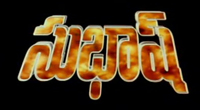
Mere Chor Mandli Full HD Movie Download
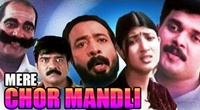
Prashanth Veer Full HD Movie Download

Jai Shree Ganesh Full HD Movie Download
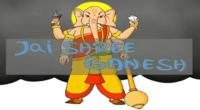
Sharktopus Full HD Movie Download

Download latest Movie from bollywood
- 1> baaghi 3
- 2> THE SKY IS PINK MOVIE FULL STORY AND REVIEW
- 3> Luka Chuppi
- 4> TO ALL THE BOYS I’VE LOVED BEFORE
- 5> Kabir Singh
- 6> Street Dancer 3D
- 7> Simmba
- 8> Gone Girl
- 9> The Girl Who Lived
- 10> Ludo
- 11> DILWALE DULHANIA LE JAYENGE
- 12> GUILTY
- 13> The Godfather
- 14> Adventures of Rusty
- 15> Sooryavanshi
- 16> Satyameva Jayate 2
- 17> Thappad
- 18> Bhool Bhulaiyaa 2
- 19> KGFChapter 2
- 20> Mardaani 2
- 21> Pinjar
- 22> Shivaji maharaj
- 23> Ek Villian 2
- 24> Hungama 2
- 25> Divergent
- 26> Mumbai Saga
- 27> The Internship
- 28> HIT (telugu)
- 29> Panga
- 30> The perfect date
- 31> 16 December
- 32> Gopala Gopala (Telugu)
- 33> Brahmastra
- 34> Gangubai Kathiawadi
- 35> Manmadhudu
- 36> Nenu local
- 37> Mahanati
- 38> Shatamanam bavathi
- 39> Lagaan
- 40> After
- 41> MOM
- 42> Shamshera
- 43> Raguvaran BTech
- 44> Khakee
- 45> The villain
- 46> OM
- 47> Mr. perfect
- 48> Bueatifull mind
- 49> Hichki
- 50> Gabbar Singh
- 51> Jogi
- 52> Before Sunrise
- 53> Before Sunset
- 54> Before Midnight
- 55> The Big Bull
- 56> Top Gun: Maverick
- 57> The Purge
- 58> The Sky is Pink
- 59> Laxmmi Bomb
- 60> Sadak 2
- 61> Sufna
- 62> Prithviraj
- 63> PK
- 64> Coolie No 1(2020)
- 65> Black Widow
- 66> Dear Zindagi
- 67> Dil Bechara
- 68> PHIR HERA PHERI
- 69> WAR
- 70> Dostana
- 71> RRR: Roudram Ranam Rudhiram
- 72> Maidan
- 73> Dabbang 3
- 74> Chhalaang
- 75> life as we know it
- 76> SherShaah
- 77> Sandeep Aur Pinky Faraar
- 78> Event Horizon
- 79> 83
- 80> Radhe: Your Most Wanted Bhai
- 81> Gunjan Saxena: The Kargil Girl
- 82> Mr India
- 83> Vivah
- 84> Anokha Bandhan
- 85> Ghost
- 86> Bhoot: Part One - The Haunted Ship
- 87> Haseen Dilruba
- 88> Laal Singh Chaddha
- 89> Qismat
- 90> Rajput
- 91> Drive
- 92> Dil Chahta Hai
- 93> Dil Ki Baazi
- 94> Dil Ka Rishta
- 95> Teesri Manzil
- 96> Dil
- 97> Love Aaj Kal
- 98> Khaali Peeli
- 99> Bunty Aur Babli 2
- 100> Atrangi Re
- 101> Gulabo Sitabo
- 102> Jodi
- 103> Suraj Pe Mangal Bhari
- 104> Deewana
- 105> Attack
- 106> Sardar Udham Singh
- 107> Toofan
- 108> THE LOVEBIRDS
- 109> Jersey
- 110> Ginny Weds Sunny
- 111> Thalaivi
- 112> Shiddat
- 113> Angels vs Zombies
- 114> Koi Mil Gya
- 115> Thank God
- 116> Bhuj: The Pride of India
- 117> Hum Aapke Hain Kaun
- 118> The Platform
- 119> Bird Box
- 120> Roohi Afzana
- 121> Torbaaz
- 122> Nikamma
- 123> World War Z
- 124> Extraction
- 125> Train to Busan
- 126> Life of Pi
- 127> SHAADI MEIN JROOR AANA
- 128> Himmat Aur Mehnat
- 129> To All The Boys: P.S. I Still Love You
- 130> Mimi
- 131> Good Newwz
- 132> Shubh Mangal Zyada Saavdhan
- 133> Raabta
- 134> Harry Potter and the Philosopher's Stone
- 135> Harry Potter and the Chamber of Secrets
- 136> Chhapaak
- 137> War of the Worlds
- 138> Harry Potter and the Prisoner of Azkaban
- 139> Harry Potter and the Goblet of Fire
- 140> MURDER MYSTERY
- 141> Shakuntala Devi
- 142> Bachchan Pandey
- 143> Jayeshbhai Jordar
- 144> Sheer Qorma
- 145> Saina
- 146> 'O' Pushpa I hate tears
- 147> Kedarnath
- 148> MS Dhoni The Untold Story
- 149> Chhichhore
- 150> Badhaai Ho
- 151> Unstoppable
- 152> Oz the Great And Powerful
- 153> The Girl on the Train
- 154> Haathi Mere Saathi 2020
- 155> The Conjuring: The Devil Made Me Do It
- 156> Gandhi Se Pehle Gandhi
- 157> The Song of Scorpions
- 158> Srimanthudu
- 159> Hello Guru Prema Kosame
- 160> Beauty and The Beast
- 161> Black Panther
- 162> Charlie and the Chocolate Factory
- 163> Bole Chudiyan
- 164> Fidaa
- 165> Duvvada Jagannadham
- 166> Bruce Lee: The Fighter
- 167> Hyper
- 168> Yaara
- 169> Red (2020)
- 170> Shivam
- 171> That Is Mahalakshmi
- 172> Nishabdham
- 173> Aashram 2020 web series
- 174> Laxmii
- 175> Mismatched
- 176> STUDENT OF THE YEAR 2
- 177> NAIL POLISH
- 178> Ramprasad Ki Tehrvi
- 179> KAAGAZ
- 180> 12 o Clock
- 181> The Power
- 182> bolo hau
- 183> Tribhanga
- 184> JAMUN
- 185> Madam Chief Minister
- 186> Maasaab
- 187> Aadhaar
- 188> Tanhaji
- 189> Bhaagi 3
- 190> Bhootnath
- 191> MALANG
- 192> Jai Mummy Di
- 193> Haathi Mere Saathi 2021
- 194> Shakeela
- 195> Unpaused
- 196> Annayya
- 197> Vamsoddharakudu
- 198> Mrugaraju
- 199> Narasimha Naidu
- 200> Sankranti
- 201> Manasu Maata Vinadhu
- 202> Anjaane
- 203> Apaharan
- 204> Bachke Rehna Re Baba
- 205> Bewafaa
- 206> Roohi
- 207> Radhe
- 208> Zindagi Khoobsoorat Hai
- 209> Yeh Mohabbat Hai
- 210> Yeh Kya Ho Raha Hai?
- 211> The Tomorrow War
- 212> DehradunDiary
- 213> Meri Shaadi Karaoo
- 214> Matruu Ki Bijlee Ka Mandola
- 215> No One Killed Jesica
- 216> Aag Ka Goola
- 217> Eight Million Dollars
- 218> Three Hundred
- 219> Cats and Dog
- 220> Decoy
- 221> Gold Rush
- 222> You Have Got Mail
- 223> Final Destination three
- 224> Tofan
- 225> Jungle
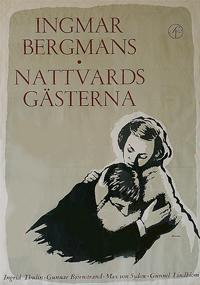 Story of movie Winter Light :
Story of movie Winter Light : 